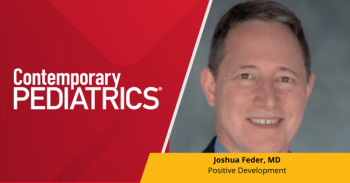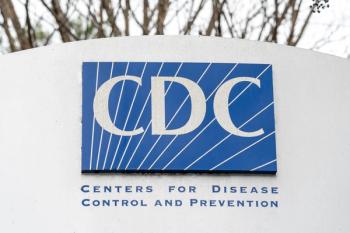
- Consultant for Pediatricians Vol 6 No 10
- Volume 6
- Issue 10
Helping Parents Decide on Complementary and Alternative Therapies for Their Child With Autism
As the father of a child with classic autism and an academic pediatrician who cares for many affected families, I thought my perspective might be helpful to other physicians who deal with the conundrum of complementary or alternative therapies that parents of children with autism may choose.
As the father of a child with classic autism and an academic pediatrician who cares for many affected families, I thought my perspective might be helpful to other physicians who deal with the conundrum of complementary or alternative therapies that parents of children with autism may choose.
The first part of the encounter is to ask about such therapies in a manner that neither judges the parent nor the philosophy of using a non-mainstream therapy. If it sounds to parents like you wouldn't approve of such therapies, then they are unlikely to let you in on their secret trials.
I generally start by saying something like, "I know that many parents use or try different types of therapies or treatments for their child with autism that their doctors may not be aware of. Have you ever tried or considered any specific ones?" With this type of questioning, between 30% and 90% of parents will reveal some type of complementary or alternative therapy use for their child.1,2 Once the door is open, the questions start to flow.
Complementary or alternative treatments usually vary from region to region and are based on the preponderance of the child's medical symptoms, such as GI, neurological, or immunological.2 Many parents may be contemplating therapies such as restrictive diets, secretin, chelation, and omega-3 supplementation. Obviously, it is difficult to be cognizant of the diverse spectrum of treatments, but it might prove helpful to be aware of the common ones to advise your vulnerable population of parents and patients.
The dilemma, of course, is that there are no evidence-based, randomized, double-blind, placebo-controlled trials for such things as gluten- and casein-free diets or sensory integration therapy, to name a few. Outside of intensive behavioral training, such as applied behavioral analysis*--which is great to suggest but difficult to implement because of limited availability in many locales--parents are left with a plethora of Internet testimonials. Fortunately, most therapies are benign, but they can be quite costly over time and require monitoring within the medical home model.
Cohen and colleagues3 offer information to help clinicians assess the safety and effectiveness of complementary or alternative therapies (Table). This Table can be used as a guide for advising parents. I have placed some of the common therapies into what I believe might be the appropriate categories. Perhaps over time some of these therapies will be better understood and can be transitioned from one categorization to another. Until then, this unfortunately, is the best method we have besides listening and monitoring to help advise parents.
I have tried to simplify some of these issues for parents by providing information about how to assess the evidence of possible benefits (or lack thereof) of different therapies (see page 573 of this issue.) I invite you to copy those pages and give them to parents who are considering a trial of a complementary or alternative therapy.
Embarking on such a trial is essentially a personal family decision--but one that needs to be made without "irrational exuberance." Physicians need to inquire about the use of complementary or alternative therapies in a non-judgmental manner and, when told of their use, must be able to monitor and advise parents appropriately. Medications that are prescribed by other consulting physicians also need to be reviewed on a regular basis (ie, selective serotonin reuptake inhibitors, anti-anxiety agents, and antidepressants). *
*Other intensive therapies that are also helpful but do not yet have as much evidence are TEACHH (Treatment and Education of Autistic and Related Communication Handicapped Children) and Dr Greenspan's "Floortime" behavioral intervention.
References:
REFERENCES:
1.
Levy SE, Mandell DS, Merhar S, et al. Use of complementary and alternative medicines among children recently diagnosed with autistic spectrum disorder.
J Dev Behav Pediatr.
2003;24:418-423.
2.
Harrington JW, Rosen L, Garnecho A, Patrick PA. Parental perceptions and use of CAM practices for children with autistic spectrum disorders.
J Dev Behav Pediatr.
2006;27(suppl 2):S156-S161.
3.
Cohen MH, Kemper KJ, Stevens L, et al. Pediatric use of complementary therapies: ethical and policy choices.
Pediatrics.
2005;116:e568-575.
Articles in this issue
about 18 years ago
Varicellaabout 18 years ago
Bell Palsy From Lyme Meningitisabout 18 years ago
Coronal Hypospadiasabout 18 years ago
ADHD: More Prevalent Than We Thought?about 18 years ago
Chronic Recurrent Multifocal Osteomyelitis: REFERENCES:about 18 years ago
Vaccine-Associated Herpes Zosterabout 18 years ago
Incontinentia Pigmenti and Hypomelanosis of Itoabout 18 years ago
Geographic Tongueabout 18 years ago
Green-Colored StoolNewsletter
Access practical, evidence-based guidance to support better care for our youngest patients. Join our email list for the latest clinical updates.






